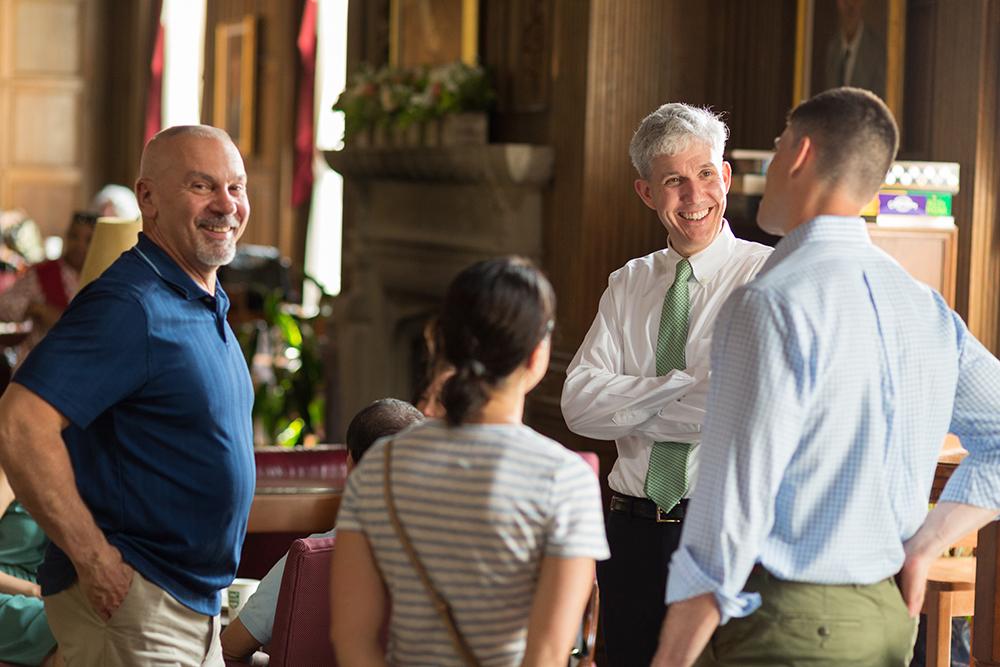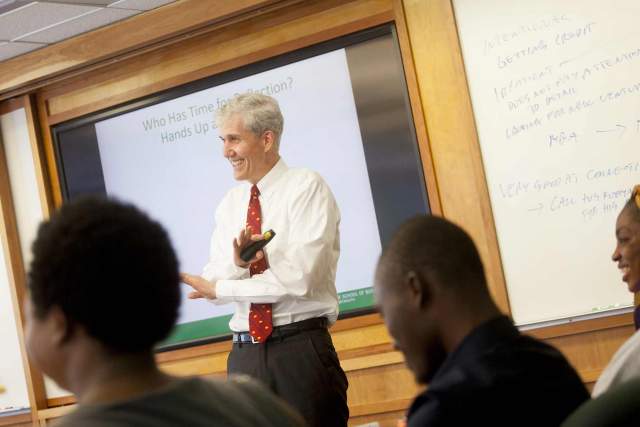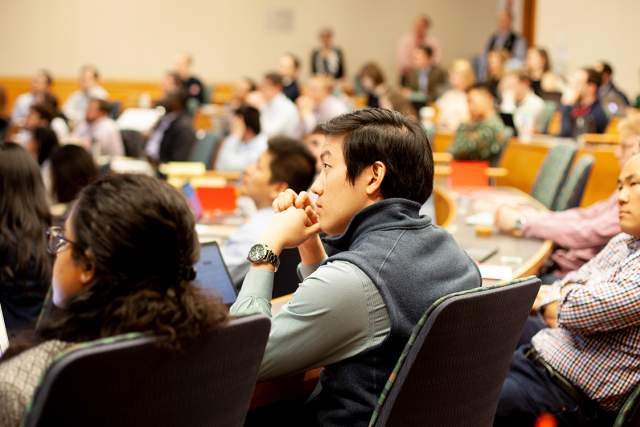Q.
In this rapidly evolving world, what role do you see Tuck and its graduates playing?
Again, I go back to why we exist as a school: to develop wise, decisive leaders who better the world through business. What we repeatedly hear from global businesses and organizations is that they need leaders who can harness information to articulate different points of view in environments of disruptive ambiguity. These are the leaders that Tuck has long developed.
We are living in a time of great innovation, but also of great complexity and uncertainty. In recent years this uncertainty has extended to the MBA marketplace, which has experienced a decrease in application volume. As many know, we at Tuck have not been immune to these forces. Our response to the challenging market conditions has been to redouble our efforts to enhance the fundamental qualities that distinguish Tuck from other business schools—to be even better at what we know we do so well and what we know the world values.
Our performance in several recent MBA program rankings—2nd in Bloomberg Businessweek, 6th in Forbes, and 10th nationally in The Economist—suggests we are on the right track. While it is gratifying for Tuck to be seen as doing well in the eyes of the world, I was especially encouraged by how we ranked on specific criteria that are hallmarks of what distinguishes Tuck, including placing 1st in Businessweek for the effectiveness of our alumni network and 3rd in The Economist for our immersive learning experience. These are just two of many qualities that set Tuck apart and that we plan to continue strengthening in the months and years to come.
What we repeatedly hear from global businesses and organizations is that they need leaders who can harness information to articulate different points of view in environments of disruptive ambiguity. These are the leaders that Tuck has long developed."
- Dean Matthew Slaughter
Q.
What has been the most gratifying part of your work so far as dean?

Time and again during my time as dean, I have been inspired by how members of our community become empowered to be their best selves as part of Tuck’s mission. This really starts with our students and faculty, who are at the heart of our learning enterprise, and then extends to our entire community—to staff and to our loyal and supportive alumni. No matter where someone stands in our school, I want them to see clearly their role in our mission of educating wise, decisive leaders who better the world through business. And every day I see our entire community taking tangible steps to contribute to this Tuck aspiration. Seeing so many people flourish through Tuck’s mission is intensely gratifying to witness.
Q.
Learning at Tuck is a lifelong journey. What has been your greatest learning to date as dean?
I have learned that the fundamental role of the dean of the Tuck School is to steward the institution toward its infinite future. As dean, I am continually thinking about building new capabilities through great students, faculty, staff, and administrative leaders—all to steward the school’s ability to thrive for the many years beyond my time here. Despite the world of late being more bracingly invigorating than most of us expected, I am confident that Tuck can play an even more central role in this world—not just in business education, but in higher education and across the globe for decades to come.

